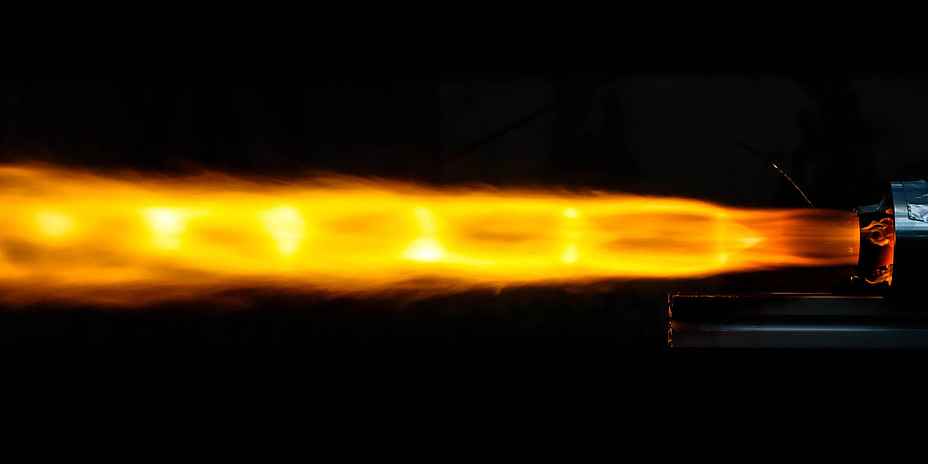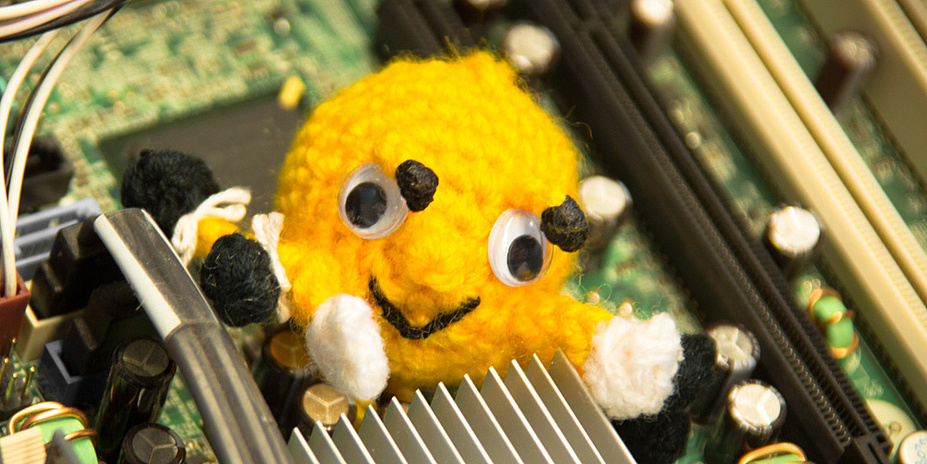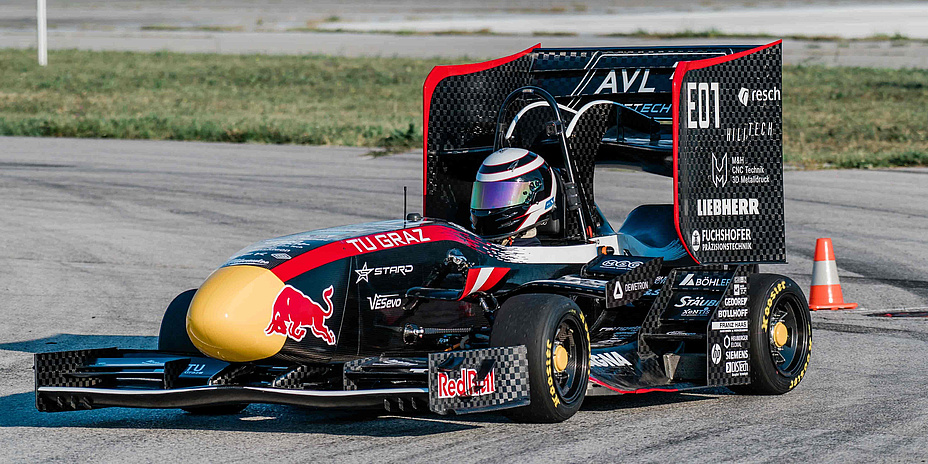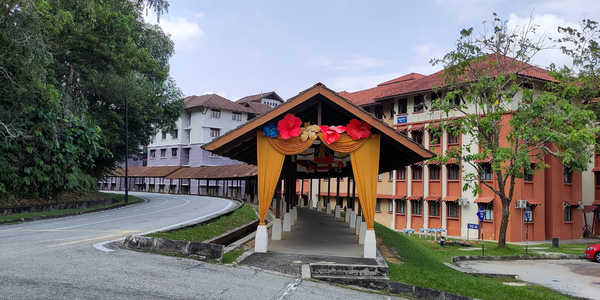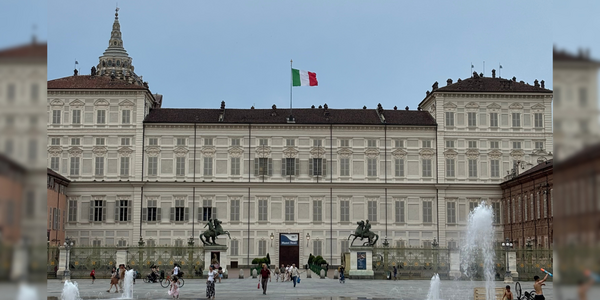Student teams at Graz University of Technology combine theory with practice: whether it's rocket construction, IT security, or Motorsport, dedicated students develop cutting-edge projects, win international competitions, and set technical standards.
What happens when students voluntarily join forces to transform the knowledge they have gained in the lecture hall into real, tangible projects? At Graz University of Technology, this results in student teams: interdisciplinary groups that participate in competitions around the world with enthusiasm, a great deal of initiative, and a dose of ingenuity. Here, they not only design, program, test, and research, but also live and breathe team spirit and take on responsibility. These projects require everything that will be needed later in their careers: creativity, perseverance, organisation, and, of course, technical know-how. We present three selected teams here: the Aerospace Team Graz, the IT security team LosFuzzys, and the TU Graz Racing Team.
Space research within reach
The Aerospace Team Graz (ASTG) makes space research accessible to students at a very high technical level. Around 80 to 100 students from over 15 disciplines work together here on projects that are otherwise more commonly found in the aerospace industry. Whether aerodynamics, structure, avionics, engine development, or telemetry - everything is created as a team and developed entirely in-house.
The developments of recent years are particularly impressive: in 2021, the first rocket, “AVES,” was constructed in just four months - including a self-developed flight computer, fuel, and parachute system. A year later, “AVES II” followed, which not only carried a scientific payload for the first time (a mini-satellite built by pupils of a higher technical college), but also won several prizes at the European Rocketry Challenge (EuRoC) in Portugal.
Things got particularly challenging from a technical standpoint with “HALCYON” (2023) – a hybrid rocket powered by solid fuel and liquid oxidizer. Here, the team developed a completely new engine with a ground station for refueling and an innovative parachute recovery system. Finally, in 2024, “ALCEDO” followed, which won several awards at EuRoC (including the Technical Award and Design Award). 2025 was another successful year for ASTG: ISPIDA, the first supersonic rocket, was developed and successfully reached an altitude of 9,000 meters with its active hybrid propulsion system. For this achievement, the team was awarded the EuRoC H9 Flight Award, securing first place at the EuRoC Award once again.
The team has also recently begun cooperating internationally with the space agencies SNSA, GAC, and ESA in the scientific mission “APEX” to observe the polarization of the aurora borealis from an altitude of about 80 km. The ASTG is also committed to promoting young talent through educational projects with schools to get young people excited about science and technology. Here, student engagement becomes real space practice and inspires the next generation of researchers and engineers.
Teams such as ASTG also offer students a great opportunity to write practical bachelor's or master's theses as part of their activities.
Hacking with brains and a good attitude
The LosFuzzys are the IT security competition team at Graz University of Technology – and right at home where information security is both a field of expertise and a passion. Under the motto “Don't feed the bugs,” the team tracks down security gaps in IT systems. Their goal: to strengthen expertise in the field of cybersecurity, understand new attack techniques, and - in the best case - make IT systems more secure in the future.
LosFuzzys show what they can do in global Capture the Flag competitions (CTFs). They compete in various disciplines: In so-called “Jeopardy” competitions, they solve tasks from all areas of IT security – often inspired by real-life security incidents. In “attack-defense” competitions, on the other hand, the aim is to attack foreign systems while protecting your own against attacks. These competitions reflect how IT security works in practice. LosFuzzys also hosts the annual GlacierCTF, a 24-hour Jeopardy CTF, which recently attracted around 789 teams (2024) and 830 teams (2023). In the “Academic Division” of the 2025 event, ISEC Travel Grants for Graz Security Week 2026 are awarded to the winners (1st to 3rd place).
But LosFuzzys don't just use their knowledge in competitions. Team members meet regularly for joint training and exchange at the in-house FuzzyLab on the Inffeldgasse campus. They develop their own hacking challenges, which are made available to external interested parties – not only for practice, but also as part of teaching at Graz University of Technology.
Particularly noteworthy is the Fuzzy Land platform developed by the LosFuzzys, a publicly accessible web environment for IT security challenges. Students, interested parties, and teachers use this platform to get to the bottom of practical security problems. In addition, there are seminars, guest lectures, and knowledge transfer at corporate partners: LosFuzzys combines a lived hacker culture with a clear mission: to strengthen IT security through knowledge, exchange, and responsible use.
A passion for electric mobility
For more than two decades, the TU Graz Racing Team has been synonymous with top-class engineering in miniature. Every year, a new electric-powered racing car is built to compete in international Formula Student competitions against teams from all over the world. The current car, known internally as “TANKIA” (“There Are No Kangaroos In Austria”), is a true high-tech vehicle: all-wheel drive, self-developed power electronics, a fully integrated data and telemetry system, plus an aerodynamics package with an optimized carbon monocoque.
Around 80 to 100 students from all disciplines at Graz University of Technology and other students from the Technical University Leoben and the University of Graz work hand in hand for a year – from the first CAD model to the finished racing car. This results not only in innovative vehicle components, but also in comprehensive concepts for cost planning, marketing, and efficiency - because in Formula Student, it's not just lap times that count, but the overall package.
The successes speak for themselves: in 2023, the team won Formula Student East in Hungary for the first time in the electric racing class. In addition to another victory in the electric class at Formula Student Alpe Adria in Croatia, the team set the world record in 2024 in the so-called “skid pad,” a test that checks cornering and lateral forces. 4.135 seconds means that no other electric car in the world has ever been this fast in this discipline. In 2025, the team defended its previous year's victory at Formula Student Alpe Adria. The team has once again proven that it is among the best in the world.
The racing team also has excellent connections off the track: collaborations with companies, intensive work with young talent, and the continuous transfer of knowledge make the project a real career springboard and a prime example of what modern mobility can look like in the hands of students.
Where students surpass themselves
Whether rocket launches, cybersecurity competitions, or high-performance racing - student teams at Graz University of Technology demonstrate the potential of voluntary engagement. What all three teams presented here have in common is that they work in an interdisciplinary manner, independently, and with a level of professionalism that often exceeds expectations. They create real technology, gain international experience, and in the process surpass themselves both personally and professionally.
Of course, there are many other teams at Graz University of Technology that do equally exciting work, such as Betonkanu TU Graz, Game Dev Students Graz, Graz BCI Racing Team - Mirage 91, High Performance Sailing – Student Team, PAULI, TERA TU Graz, TU Graz Data Team, TU Graz Field Robotics Team TEDUSAR, TU Graz Robocup Team GRIPS, TU Graz Satellites, and many more.
Play video
In addition to studying, wanting to also help shape the future, a student team is the right place to be. Because here, learning doesn't end with the lecture, but often begins exactly where the lecture hall ends.

